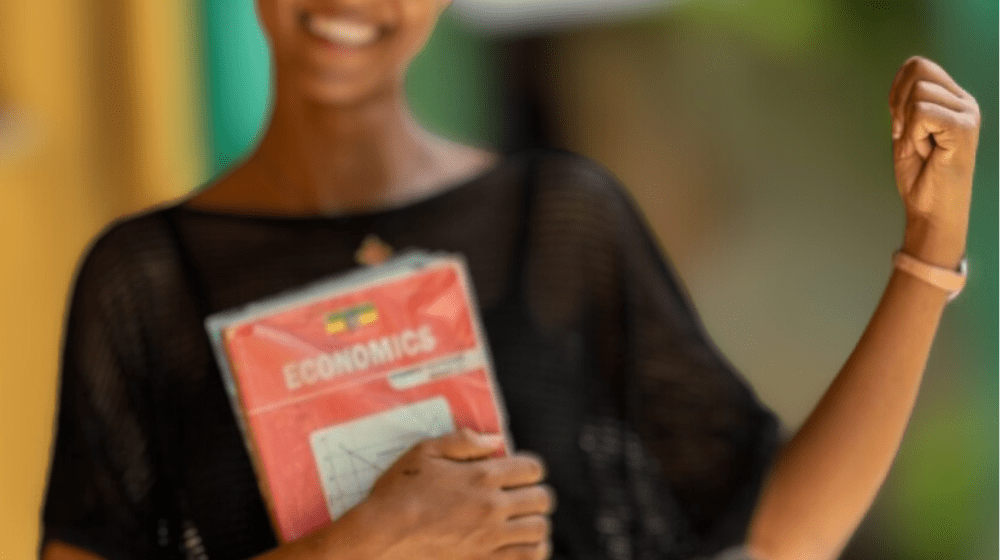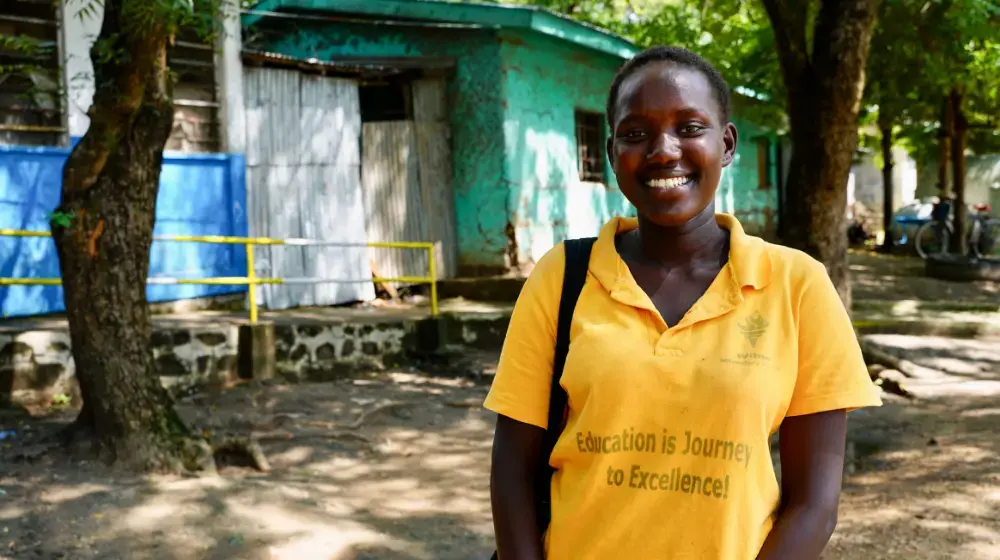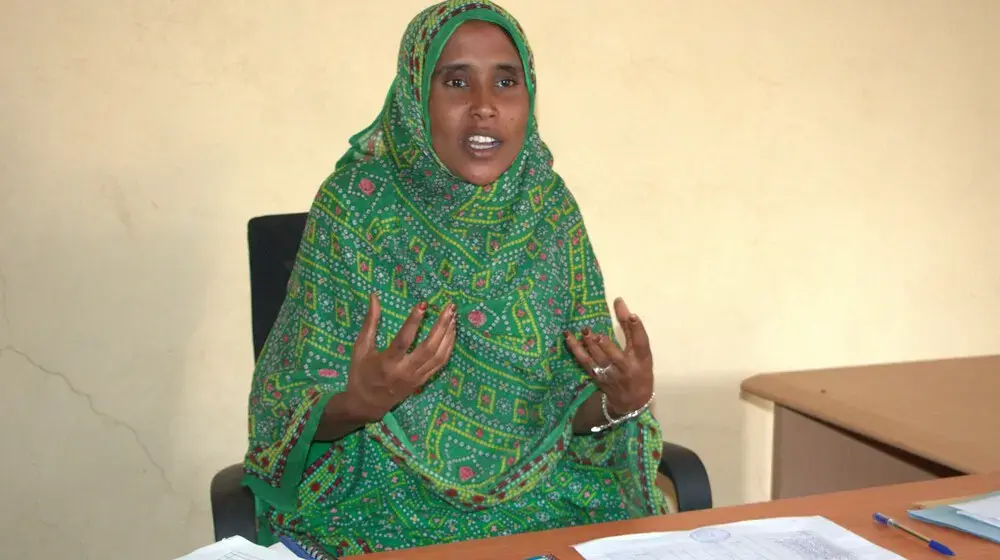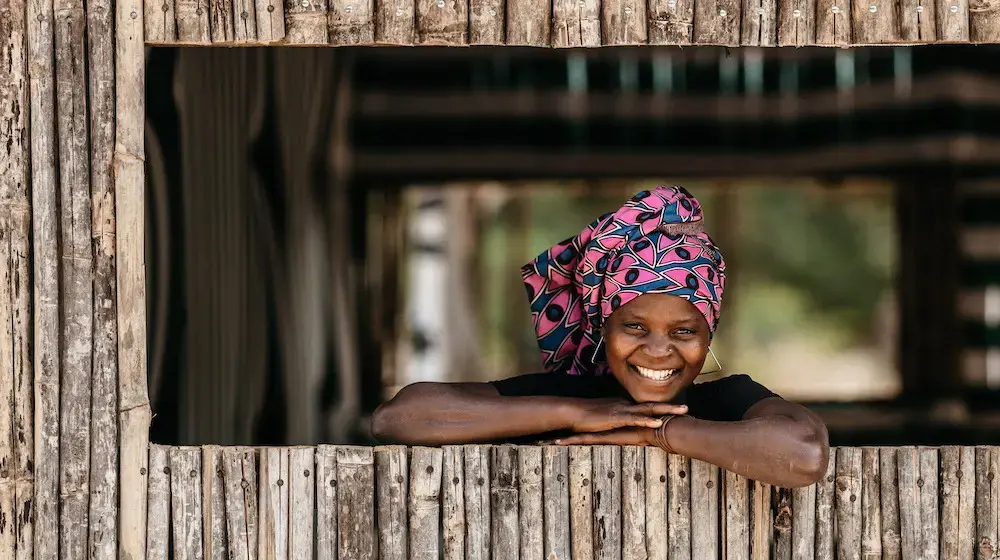"I was very scared when I first entered the safe house. I was lonely and would not leave my room for one month. However, the people here are very welcoming and kind, so it did not take me long to adapt. Now, I became the person who welcomes the newcomers," says Alemtsehay Abelneh, 18, recalling her first days in the safe house.
Alemtsehay lives in the Mujejegua Loka Women Development Association Safe House in Benishangul Gumuz Region. In 2019, she was among the thousands who were forced to flee their homes because of inter-communal conflict in the Metekel Zone. Prior to the conflict, she lived with her family in Dafili Kebele, located just a few kilometers from Mandura City in the Metekel zone. Her family had numerous cattle and a profitable farming business. However, when an armed group invaded their village, they had to flee leaving everything behind.
Alemtsehay believes in the importance of education, stating that "if we are not educated, we can't change our lives." As a bright student who consistently ranked at the top of her class, she understood the value of education.
After relocating to the Chageni IDP camp with her family, she immediately sought to enroll at a nearby school. However, her former school in Mandura City did not provide her with the necessary transfer documents. Undeterred, Alemtsehay decided to take matters into her own hands, leaving her family behind and returning to her former city to live with a relative and pursue her 8th-grade education.
Soon, Alemtsehay faced another challenge: her family informed her that she was to be married to a wealthy man who had promised to provide financial support to the family in exchange for her hands-in marriage. She refused the marriage proposal and continued to focus on her studies and managed to achieve an incredible feat by becoming the top scorer in her entire region in the 8th-grade national exam. The regional government duly recognized her achievements.
However, the person who had agreed with her family to marry her began stalking her. Worried about her safety, she decided to run away to stay with her older sister in Gelegel Belse City and enrolled at a new school in the 9th grade. Regardless, the stalking did not stop.
It was at her new school that Alemtsehay learned about the Mujejegua Loka Safe House. She received information from an awareness-creation club that the safe house supported girls in similar situations to her. She visited the safe house to share her story, explaining that she had been stalked and pressured and her fears for her safety. The safe house welcomed her into the space. Alemtsehay was relieved to join a place with a supportive environment, counseling, and other resources to help her feel safe and move forward.
A Safe Space at MLWDA
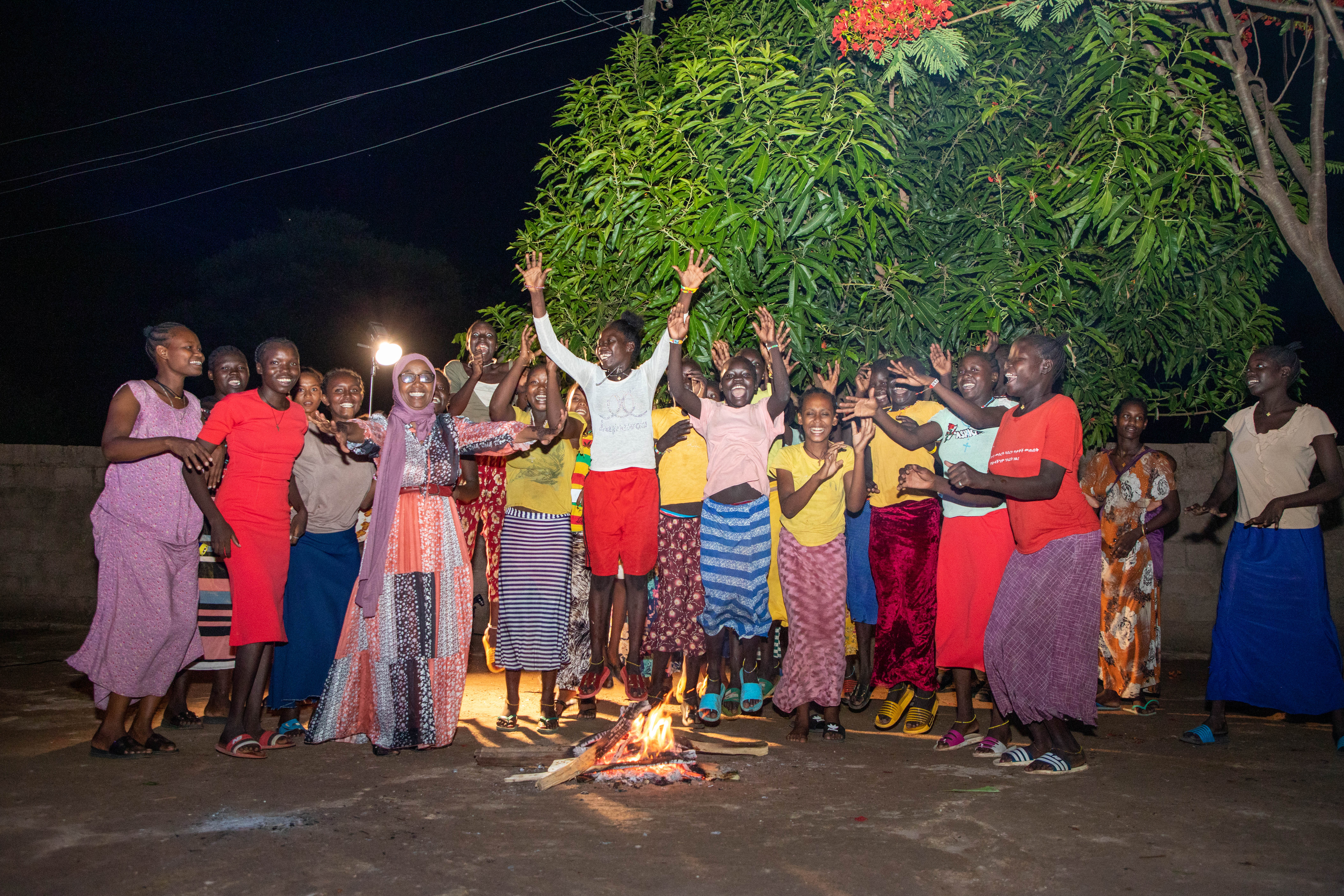
and girls to pursue education and stand up for their rights.
Mujejegua Loka Women Development Association (MLWDA) is a local non-governmental organization (NGO) that partnered with UNFPA to implement a one-year project from March 2022 -March 2023. The project is funded by the People and Government of Japan and aims to address Gender-Based Violence (GBV) and Sexual and Reproductive Health (SRH) in the Metekel Zone. The partnership between MLWDA and UNFPA is crucial in providing support and resources to GBV survivors, as well as promoting SRH education and services in the community.
The MLWDA Safe House is a sanctuary for Alemtsehay and 60 other girls and women who have experienced gender-based violence.
Safe houses provide refuge for survivors of rape, those fleeing forced or exchange marriages, and women who escape from abusive partners or situations where they fear for their lives. In addition to providing housing and food, the safe house also offers education and skills training to help women rebuild their lives. MLWDA Safe House has the capacity to shelter up to 100 women and has a library, first-aid medical treatment, psychological therapy, and vocational training.
Similar to other UNFPA-supported safe houses, the MLWDA provides integrated services and works with other partners through referrals and other arrangements.
Safe houses have strong connections with other stakeholders, including government agencies such as the police, public prosecutors, women and children’s affairs offices, medical centers, and legal offices. This integrated approach makes it easier for survivors to report abuse, seek justice, and receive medical treatment and counseling.
With the support received from UNFPA through Japan funding, MLWDA has been able to provide immediate assistance to women and girls in need. It has been a lifeline for women and girls who desperately sought refuge by providing them with the support & resources they need to heal from the trauma of gender-based violence and other forms of abuse and rebuild their lives.
Healing, Thriving, and Determined
Alemtsehay continues to excel, maintaining her position as the top scorer in her 11th-grade class. She aspires to attend Addis Ababa University to study social work. Her dream is to empower women and girls to break free from harmful practices and gender-based violence and support them lead safe and fulfilling lives. Her determination is a testament to the resilience of GBV survivors and the transformative power of education.

